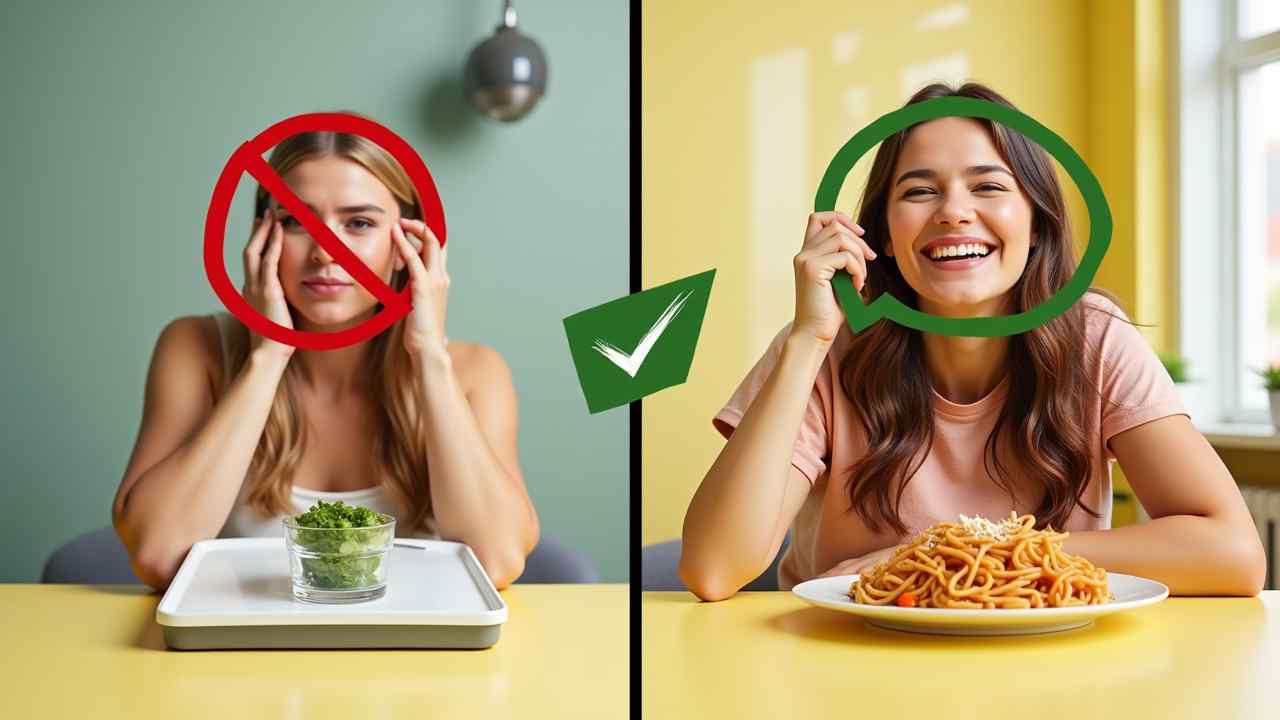
❤️ How Not to Diet: A Guide to Food Freedom & Intuitive Eating
❤️ Rethinking Wellness: A Guide on How Not to Diet ❤️
For decades, we have been told that the path to health is a new diet. We cycle through low-carb, low-fat, and countless other restrictive plans. Yet, for many, this only leads to a frustrating yo-yo effect and a damaged relationship with food. This has led to a powerful new question: what is the secret of how not to diet?
"How not to diet" is a philosophy. It is an anti-diet approach that focuses on healing your relationship with your body and with food. It is about learning to trust your internal cues instead of following external rules. It is a path to a more peaceful and sustainable form of well-being.
This guide will introduce you to the core principles of this liberating approach. It is often known as Intuitive Eating. Let's start your journey to food freedom. ✅
🤔 What is the Core Philosophy of the "Anti-Diet" Approach?
The core philosophy is simple: diets do not work long-term for most people. The restriction of dieting often leads to a cycle of craving, bingeing, and guilt. This can be more harmful to our physical and mental health than not dieting at all.
The goal of how not to diet is to break this cycle. It is about unlearning the rules that diet culture has taught you. It is about reconnecting with your body's own innate wisdom. You learn to eat when you are hungry and stop when you are full. All foods are allowed.
- What Are the Key Principles of Intuitive Eating?
Intuitive Eating is a framework with several key principles. These are the practical steps on the path of how not to diet. Here are a few of the most important ones.
1. Why must you reject the diet mentality?
This is the first and most important step. You must consciously give up the idea that a new, different diet is the answer. You have to let go of the belief that weight loss is the ultimate goal. This opens you up to a new way of thinking.
2. How do you learn to honor your hunger?
Your body needs a consistent supply of energy. Honoring your hunger means eating when you feel the first physical signs of it. Ignoring your hunger often leads to primal, intense hunger later. This can result in overeating.
3. Why should you make peace with all foods?
This can be a scary step. You must give yourself unconditional permission to eat any food. There are no "good" or "bad" foods. When you know you can have a piece of cake at any time, it loses its power over you. This helps to end the craving-binge cycle.
4. How do you feel your fullness?
Just as you learn to listen to your hunger, you must also learn to listen to your fullness. Eat slowly and mindfully. Check in with yourself during a meal. Ask yourself, "How does this taste?" and "Am I still hungry?" Learn to recognize the comfortable feeling of being satisfied, not stuffed.
5. How can you find joy in movement?
Shift your focus from burning calories to finding a way to move your body that feels good. Go for a walk in a beautiful park here in Bursa. Take a dance class. The goal of exercise should be to feel energized and strong, not to punish yourself for what you ate.
- What Does a Meal Look Like When You're Not Dieting?
A meal on a non-diet is simply a balanced and satisfying plate of food. It includes protein, carbs, and fat. It is a meal you genuinely enjoy. It could be a hearty lentil soup ("mercimek çorbası") with a side of bread in the autumn. 🍂
The difference is the mindset. You are eating it because it is nourishing and you are hungry. You are not eating it because it fits a set of rules. You are also free to enjoy a piece of baklava for dessert, mindfully and without guilt. The path of how not to diet is a journey back to trusting yourself. It is a path to a truly healthy and happy life. 🧘♀️